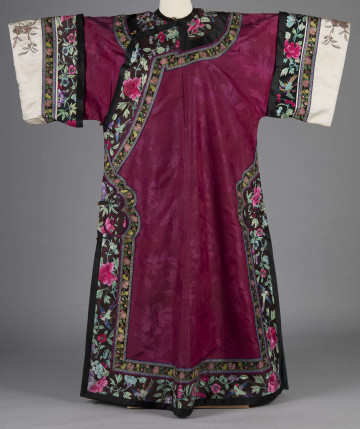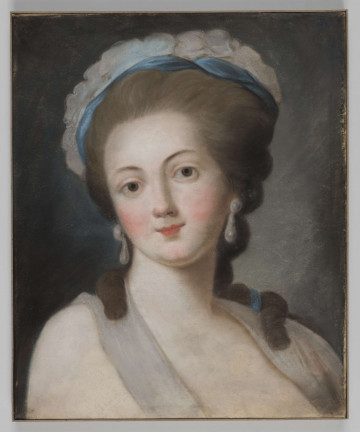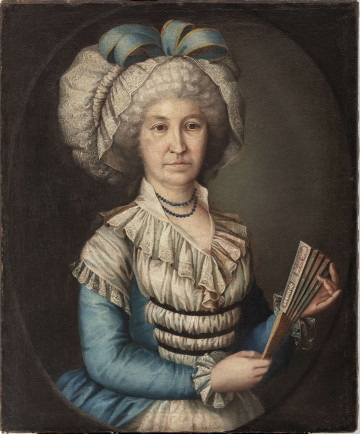
Court dress longpao
1880 — 1900
National Museum in Lublin
Part of the collection: Textiles, clothing and costume accessories
The end of the 19th century saw a breakthrough in women's fashion. Many of the costume changes were due to the increase in women's activity. Dresses still reached the ground but were deprived of frames and stiffeners, present in the historicising fashion of the second half of the 19th century. Decorative draperies, so characteristic of earlier fashion, were also a thing of the past. However, the corset was not abandoned, despite criticism from medical circles. Models of the then-created loose dresses, favourable for women's health, served as domestic attire. However, an elegant afternoon or ball dress, usually silk, was often double-layered. An essential element of underwear for a lady was an elongated corset emphasising the waist and accentuating the feminine figure.
The Art Nouveau style covered all areas of art. Artists and designers tried to unify and integrate arts and crafts. The characteristic Art Nouveau wavy line can be found in dresses emphasising the fuller-bodied as well as slender female figure. It was also emphasised by the high-done up hairand the large hat, often decorated with feathers. The thong added elegance to the whole. The decoration of the garments followed the trends of that time, with predominating motifs taken from nature. These were often floral ornaments. To emphasise the decorative motif of the upper layer (sewn from lace or other transparent material), the bottom layer of the outfit was made from contrasting coloured fabric. Such richness of the forms of formal and dance ball ladies' costumes was complemented by decoration from sewn-on sequins, rhinestones or straps. The shimmer of formal dresses added mystery and charm to the wearer.
The silk double-layered dress in the museum's collection is a typical elegant formal dress from one of the most important centres of Art Nouveau, Vienna. Such a dress was extremely desirable for a fashionable woman at the turn of the 20th century, and even today it still greatly impresses viewers.
Magdalena Norkowska
Author / creator
Dimensions
cały obiekt: height: 150 cm, width: 164 cm
Object type
outfit
Technique
applique
Material
silk satin, sequins
Creation time / dating
Creation / finding place
Owner
The National Museum in Lublin
Identification number
Location / status

1880 — 1900
National Museum in Lublin

1780 — 1800
National Museum in Lublin

1785 — 1790
National Museum in Lublin
DISCOVER this TOPIC
National Museum in Szczecin
DISCOVER this PATH
Educational path